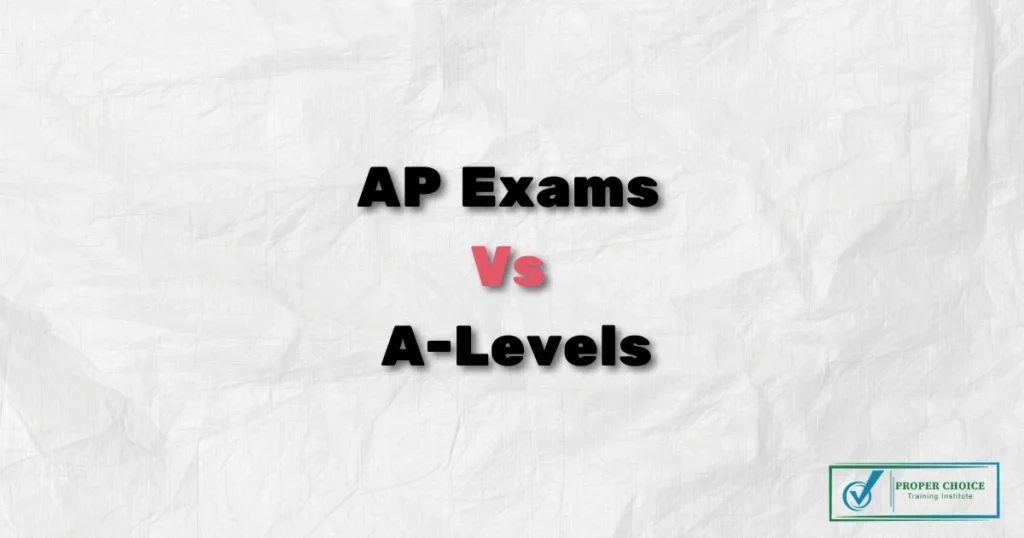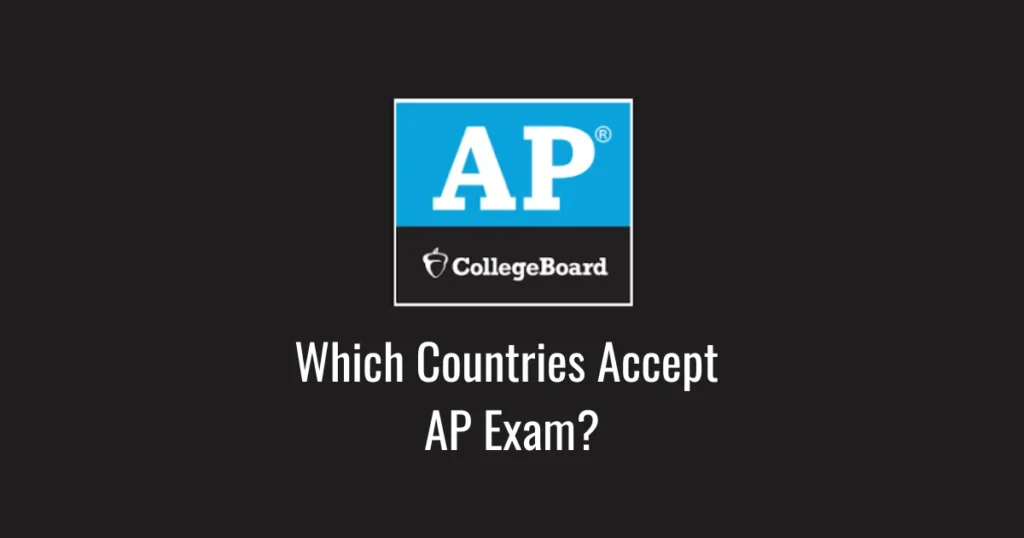Confused between AP Exams vs A-Levels? This guide for UAE students compares structure, grading, and global recognition to help you make the right choice.
As international education options expand in the UAE, many students and parents face the challenge of choosing between two major academic programs: the Advanced Placement (AP) system and the British A-Level system. Each has distinct advantages, structures, and recognition patterns that significantly influence university admissions and career paths. This guide compares both in detail, helping UAE students make informed decisions based on their goals, strengths, and university aspirations.
Table of Contents
1. Overview of AP and A-Levels
AP Exams (Advanced Placement)
- Origin: United States
- Offered by: College Board
- Structure: College-level courses and exams offered in high school
- Number of subjects: 38+ courses (e.g., AP Calculus, AP Biology, AP Economics)
- Grading Scale: 1 to 5 (with 5 being the highest)
- Typical Duration: One academic year per course
A-Levels (Advanced Level qualifications)
- Origin: United Kingdom
- Offered by: Cambridge International, Pearson Edexcel, Oxford AQA, etc.
- Structure: In-depth study of 3- 4 subjects over two years (AS and A2 levels)
- Number of subjects: 60+ (e.g., Maths, Physics, Literature, Business)
- Grading Scale: A* to E
- Typical Duration: Two academic years
2. Curriculum and Assessment
AP Curriculum
- Modular and flexible
- Students can choose how many AP subjects to take each year
- Content is standardized globally
- Exams are multiple-choice and free-response based
- Only final exam scores count toward university credit
A-Level Curriculum
- Depth-focused, fewer subjects
- Two stages: AS (Year 1) and A2 (Year 2)
- Heavily essay and problem-solving based
- Continuous assessments and final year exams both contribute
- Students often specialize early in academic areas
Key Difference: AP is more broad and exam-centric, while A-Levels emphasize depth and a progressive approach to mastering fewer subjects.
3. Recognition by UAE and Global Universities
In the UAE:
- A-Levels are more commonly offered in British curriculum schools (e.g., GEMS, JESS, Repton).
- AP is offered by American curriculum schools (e.g., American School of Dubai, Dubai American Academy).
4. College Credit and Admissions Impact
AP Benefits:
- AP scores of 4 or 5 can grant college credits at many US and Canadian universities.
- Allows students to complete their university degree faster and at a reduced cost.
- Strengthens US college applications by demonstrating academic rigor.
A-Level Benefits:
- A-Levels are a standard requirement for admission to UK universities.
- High grades (A* and A) are strongly valued for competitive programs like Engineering, Law, or Medicine.
- Better suited for specialization, e.g., pursuing a science-based or humanities-focused university program.
For UAE students aiming for:
- UK/Europe: A-Levels offer a smoother transition.
- USA/Canada: APs align better with college credit systems and SAT integration.
5. Flexibility and Subject Choice
AP System:
- Flexible: Students can take APs along with their regular American high school curriculum.
- Broad subject selection encourages interdisciplinary study.
- Encourages students to challenge themselves with advanced content.
A-Level System:
- Rigid in subject focus, but allows deep study in chosen fields.
- Prepares students well for specific degree programs.
- May limit exploration outside selected subject areas.
6. Teaching and Learning Style
AP Style:
- Encourages independent learning, college-style preparation
- Emphasis on standardized testing
- Less writing-intensive compared to A-Levels
- Suitable for students who excel in exams
A-Level Style:
- Encourages critical thinking, essay writing, and analytical depth
- Classroom instruction more in-depth per subject
- Heavily curriculum-based and assessment-focused
- Suitable for students who prefer mastery over fewer subjects
7. Performance Pressure and Exam Format
AP Exams:
- One-time exam in May each year
- High-stakes, time-limited test
- Practice tests are widely available online
- Not coursework-based
A-Level Exams:
- Divided across AS and A2
- Final exams at end of Year 13
- May include coursework and practical assessments
- Less “all-in-one” pressure compared to APs
8. Cost and Availability in the UAE
A-Levels:
- Widely available in British curriculum schools
- May be more expensive due to longer duration (2 years)
- External candidates can sit exams with British Council support
APs:
- Available only in American curriculum schools or via authorized test centers
- Exam fees are typically around AED 500 – 600 per subject
- Students may self-study and register as independent candidates
Equivalency requirement (MoE): UAE students planning to study locally must ensure they meet the Ministry of Education equivalency criteria for either pathway.
9. Final Thoughts and Recommendations
Both AP and A-Level programs offer strong academic preparation for university, but the ideal choice depends on:
- Your university goals: US-bound students benefit more from AP, while UK-bound students should consider A-Levels.
- Your learning style: Exam-focused students may excel in AP, while students who prefer essay writing and depth may prefer A-Levels.
- Your school curriculum: Your current school may already align with either the British or American system, limiting choices.
For UAE students planning to study abroad:
- Take time to consult with your school counselor.
- Ensure subjects chosen meet future university prerequisites (e.g., medicine in UK needs Chemistry & Biology A-Levels).
- Consider combining AP with SAT or A-Levels with IELTS for holistic applications.



